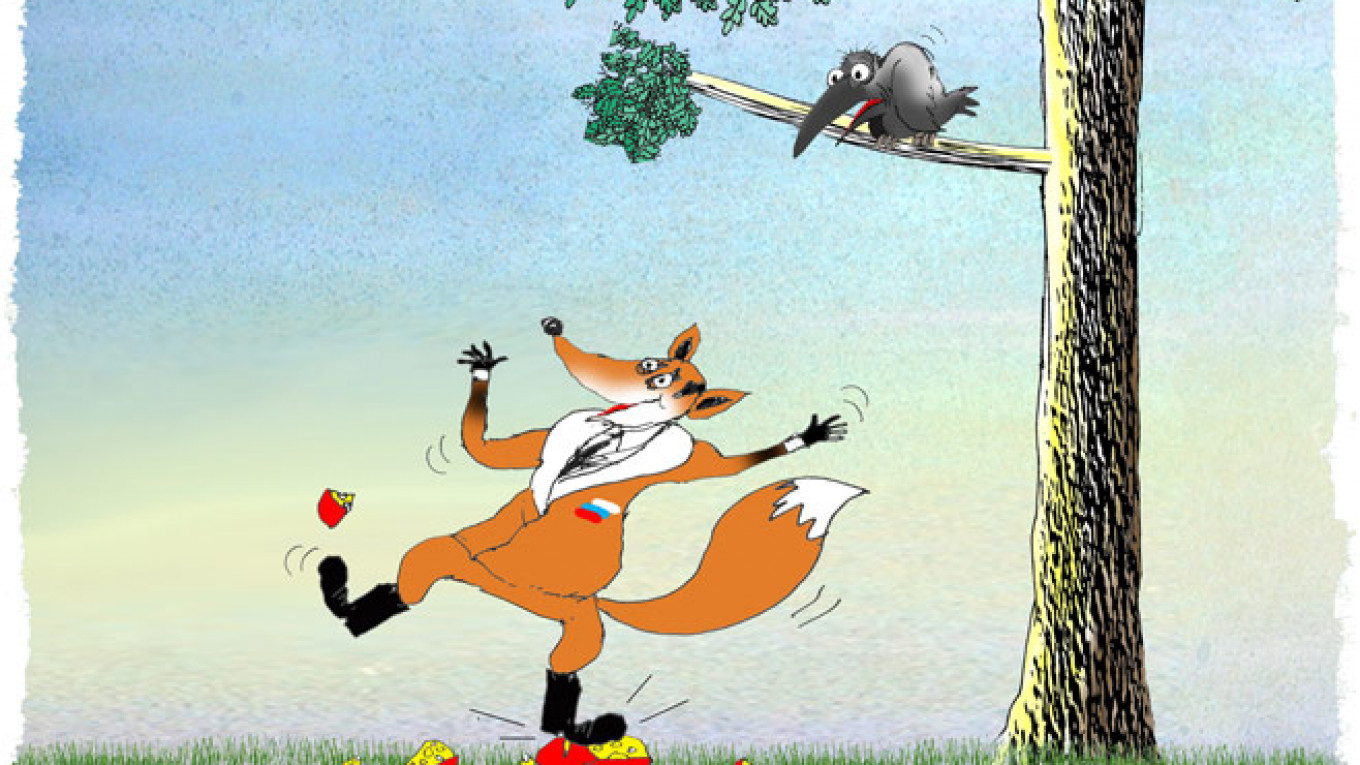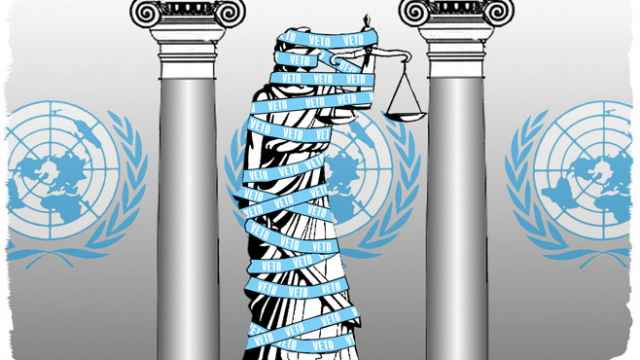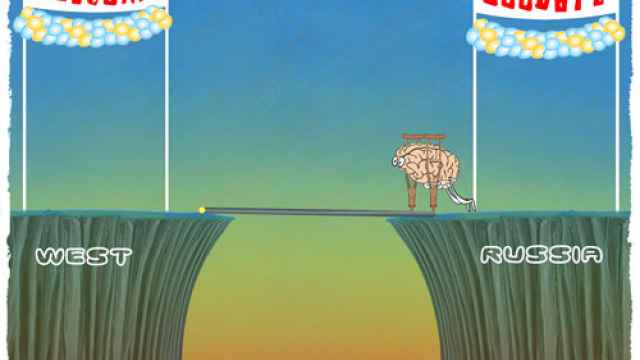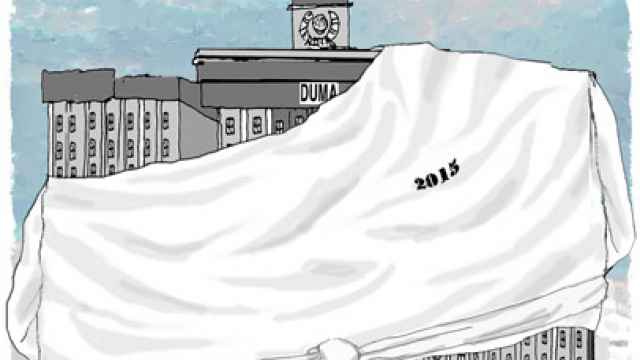It is already clear that life under sanctions will continue for a long time in Russia. And the situation will only intensify over time as a result of the country's own internal drama. You have to periodically arouse the public's interest in the conflict with the West with new plot twists, otherwise it will get boring, and the public will turn to other topics. The demonstrative destruction of food, shown on television, is politics composed of several different elements.
It has only been a year since the Russian food embargo was introduced, and here we are today, bulldozing cheese and jamon into the ground. This says a lot about the quality of decisions being made.
When the ban on foreign goods was implemented, no one concerned themselves with the details, like what should actually be done with the banned goods and whether they should be used or sold. Why not send them to retirement homes, poor people, or orphanages? No, they did it the usual way: enact the law first, and then think about how to carry it out.
On the other hand, this lack of consideration comes in handy in terms of dramaturgy. If the bulldozers had been brought out against yogurts and cheese last year, against the backdrop of dangerous escalation in Ukraine, it would have only added hysteria to the conflict with the West; holding back meant that Russia still had another potential move in the escalation game. Russia doesn't have that many moves, to be honest, if you take away strictly military actions.
We also had a chance over the last year to see how substitution of imports would work, and how challenging the embargo would turn out to be. Thinking things through ahead of time — that's not our style. The authorities looked around, saw that no one was starving, and decided to turn the screws some more. According to some calculations, the share of contraband food on the market didn't exceed 10 percent. Apparently they decided that bulldozing food into asphalt couldn't make anything worse.
How you interpret this destruction of food has become yet another "test of loyalty." The spontaneously developed "party line" is that these measures are in defense of Russian consumers against dangerous and harmful goods coming to us from the evil West under false documents. It seems to me that an even more cynical and effective response to the West would be test those goods out not only on retirement home residents, the homeless, and orphans, but on residents of the Donbass.
But it wouldn't be possible to carry out such a marvelous, cynical plan in Russia. Because everyone who ordered the destruction of food knows that everything would be stolen and resold, you can't trust anyone, and it's impossible to monitor the implementation of such a complicated order. Easier just to burn everything.
For government critics, of course, broadcasts showing "fromagicide" (from the word for "cheese" in French) necessarily give rise to emotional exclamations about the latest "crime of the bloody regime." Here we have 16 percent of the population living below the poverty line, hungry, and they are flattening parmesan with bulldozers.
This leads to the conclusion that this kind of policy will inevitably cause a social explosion, the starving population will revolt over jamon and get rid of the "bloody regime." And then immediately gorge on European food.
If you look at survey data, it's true that about half of Russians don't support the destruction of banned goods. According to the independent Levada Center, these severe measures have the full support of only 17 percent, while 23 percent of respondents see them in a "somewhat positive" light, 33 percent "somewhat negative," and 15 percent are completely opposed.
Meanwhile, close to a majority supported giving the food to children's homes and hospitals (43 percent), and 24 percent approved of sending it to the Donbass. These are just surveys, however, not backed by any action, particularly no active protests.
The vast majority of the population couldn't care less about the entire list of "sanctioned goods." Those products were never a part of their diet, excluding the well-off parts of Moscow, St. Petersburg, and maybe several other major cities. Most average citizens aren't acquainted with the different scents of camembert and brie and they happily substitute jamon with pork and canned meat.
Fruits and vegetables traditionally play a limited role in the Russian diet, aside from those that grow in domestic gardens and are pickled and preserved. The same goes for fish, except for those that fishermen here catch themselves, or herring, of course. As for the rest, cheese is cheese, and sausage is sausage.
The replacement of some (import) ingredients will go unnoticed, and consumers won't directly connect the higher prices for other goods to the Russian embargo. In fact, they will ascribe the change to the scheming West. We have a long way to go before we hit the empty supermarket shelves of Venezuela. Besides, everyone who lived during the end of the Soviet Union remembers that even empty shelves didn't lead to any unrest.
All the energy of average Russians is usually directed at finding ways to adapt (or bargain, or get something through connections, or get someone to make a personal exception for you) to difficult conditions for themselves and their families, rather than join others to fight for improved quality of life and rules for all.
What will be the next plot twist in life under sanctions? We don't know. Because we don't know how much of the script the director has written. Or whether it has been written at all.
Georgy Bovt is a political analyst.
A Message from The Moscow Times:
Dear readers,
We are facing unprecedented challenges. Russia's Prosecutor General's Office has designated The Moscow Times as an "undesirable" organization, criminalizing our work and putting our staff at risk of prosecution. This follows our earlier unjust labeling as a "foreign agent."
These actions are direct attempts to silence independent journalism in Russia. The authorities claim our work "discredits the decisions of the Russian leadership." We see things differently: we strive to provide accurate, unbiased reporting on Russia.
We, the journalists of The Moscow Times, refuse to be silenced. But to continue our work, we need your help.
Your support, no matter how small, makes a world of difference. If you can, please support us monthly starting from just $2. It's quick to set up, and every contribution makes a significant impact.
By supporting The Moscow Times, you're defending open, independent journalism in the face of repression. Thank you for standing with us.
Remind me later.







